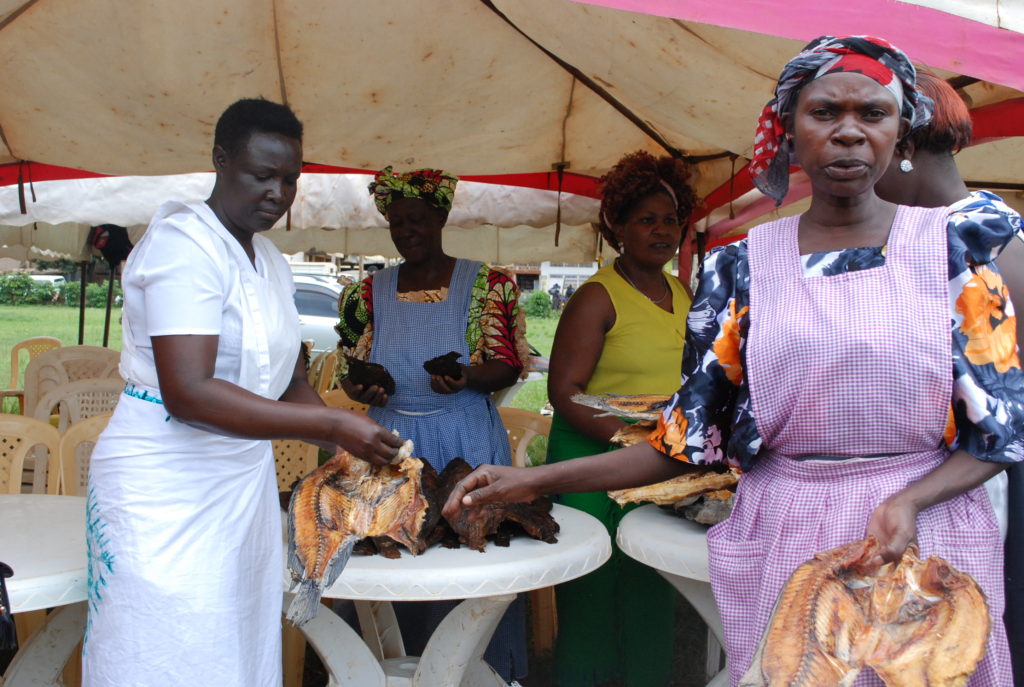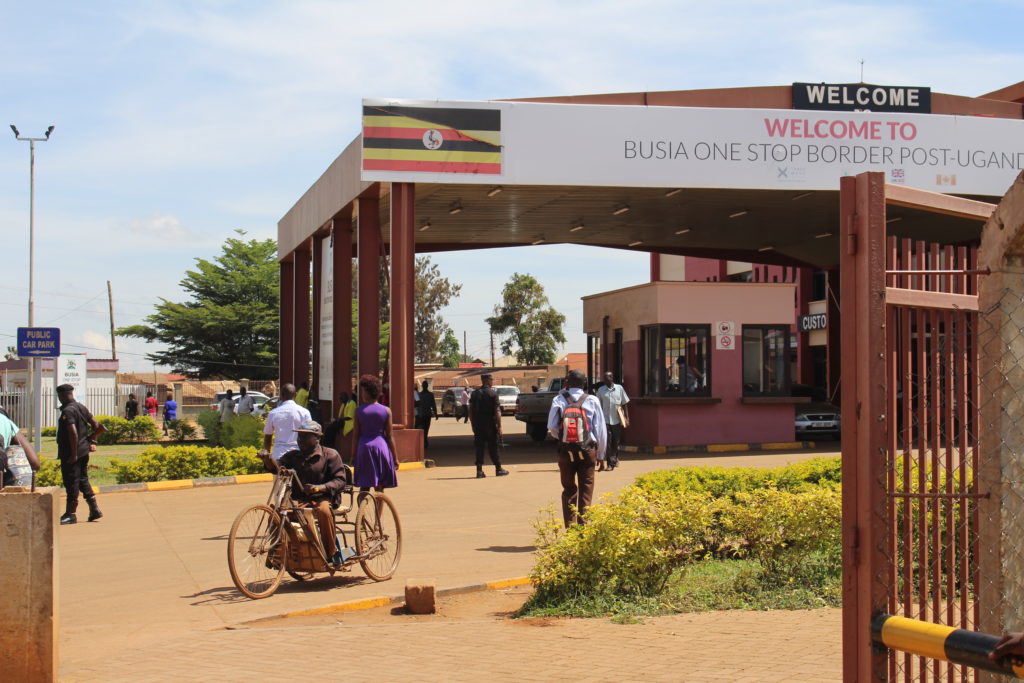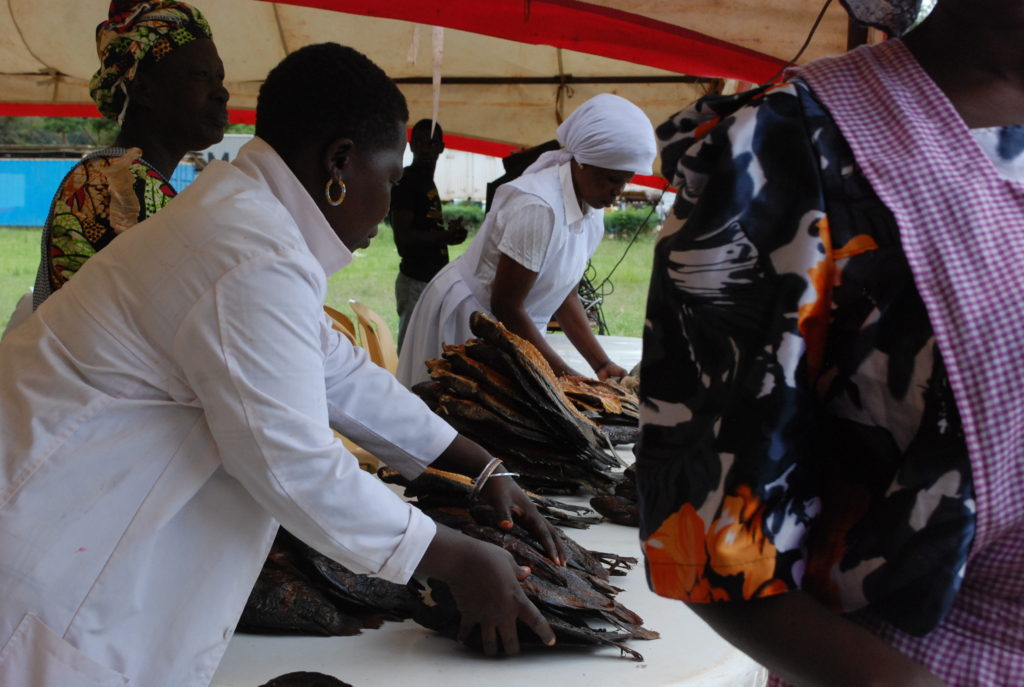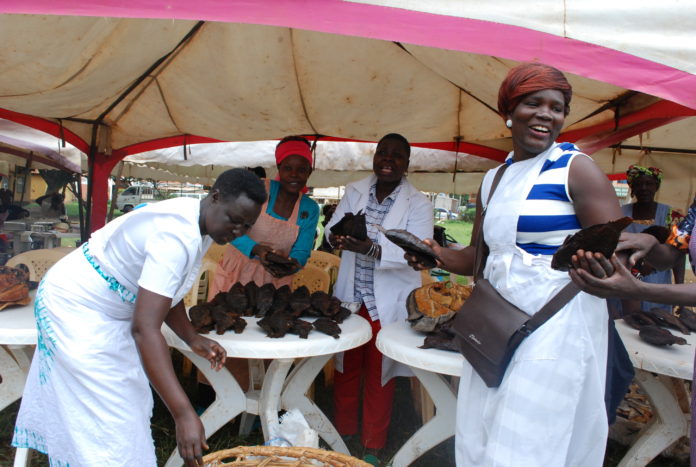By Mary Mwendwa
Rosa Akinyi is a fish monger at the Kenya’s oldest famous Gikomba market.
she has just crossed the border with her fish. She is sad, she opens up about her woes in the fish business.
“ I have been in this fish business for more than ten years, Initially all was well, we never used to pay high taxes, now things have changed, I don’t even know how much I will pay every time I cross the border with fish from Uganda.” Akinyi starts her conversation with the writer.
The Kenya – Busia border post is full of activities. Chains of tracks waiting to be cleared by the customs department, buses, personal vehicles and groups of people carrying goods are some of the sceneries that are common at the border.
Several offices are lined up at the border with both armed police from both Kenya and Uganda busy manning the border.Indeed it is a busy border, full of business activities.
Everyone seems to be in a hurry, no one has time to stop and talk, it is a matter of crossing and paying your taxes at the border.However , in the midst of this beehive of trade activities traders are crying foul over high taxes that are eating into their profits.

“ Every time I cross the border with fish, the tax rates will always differ and more so they are to high for me, many times I incur losses.” A wistful Akinyi confirms.
Akinyi sells fresh and dried fish at Gikomba market and is keen on the trends of free trade agreements some of which she views are not being implemented to benefit local traders like her.
Her fish stocks retail between 150 ksh and 500 ksh depending on the type of fish. Fried fresh fish is more expensive as compared to the dried fish.
“ You see when I get fish from Uganda Iam always scared because I do not know how much I will be charged at the border customs offices. First I must have my permit, the at the border there are fisheries department staff from Kenya and customs offices. I have to pass through at least four desks for me to be cleared.”
Akinyi reveals that she pays the taxes depending on the weight of her fish luggage.There is no standardised rate that she can easily plan with. “ Sometimes at the border especially the fisheries people they will just look at you and the luggage and decide on a payment, this is very frustrating because you can never know what you will pay. “

Akinyis challenges are not only on taxes, she says that the Uganda government is very harsh on Kenyan traders. “ You can easily be arrested while in Uganda despite having the necessary permits to do business.Yes, goods are cheap in Uganda but the environment is not friendly at all, I urge both governments to have a mutual agreement to help business people.”
She also notes that fish population has been reducing over time. Something that worries her too.Similarly, Mary Onyango is a resident at Busia town. She is the chairperson of Busia Cross Border and Service Providers Women Group.
She reveals that they started the group a few years ago to help traders across the border. “ Many traders from Kenya are ignorant of the taxes they are supposed to pay at the border, Many of them end up in criminal hands and lose money and goods. We therefore saw a need and formed this group where we have over 100 members actively involved in cross border trade activities.”

Onyango says that they facilitate trade of goods such as clothes, body oil, handbags,bedding and shoes.” We are like brokers here, we engage traders and agree on amount so that we help them to access shops and goods from uganda, we even help them with exchange rates so that they are not robbed.This is business for us and it has helped many women make a living.”
“ We get goods from Uganda at very friendly prices, however this celebration is thwarted once you reach at the border to pay taxes. For example a kitenge cloth will cost 1200 ksh but when you reach at the border it will fetch very high tax rate of upto 15 percent.
Caroline Owour a member of the group says that at times she has no client and that means no money for her. “Sometimes the traders come and get a rude shock of the taxes here,some opt to buy very few items like 5 products which fetch no tax and decide to go back, when that happens we lose .“
Owour also notes with alot of concern about the arrests the encounter in Uganda. “ We do get arrested many times for petty crimes like idling. We are then charged huge fines of upto 10,000 ksh per person. I thought this body called East Africa Community was to facilitate free trade among the member states and also come up with friendly pol














